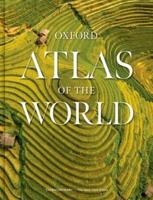Publisher's Synopsis
Excerpt from Address by Hon. Wm. J. McAlpine Before the Chamber of Commerce at the Cooper Union: On the Extent of the Products of the Food-Producing Interior of the United States; The Channels of Transport to Market; Their Relative Capacity and Economy; What Improvements or New Routes May Be Made to Increase and Cheapen Transport
Twenty years ago, I ascertained that the agricultural exports from the West equalled in value the imports from the East, and in tonnage were as four to one. At the present time, when many of these agricultural products are condensed into ?our, the products of animals, and Spirits (to lessen the cost of transporta tion), the proportion of the tonnage between the Western exports and imports, of the same aggregate value, is probably as three to one. Thus, out of about seven millions of tons of freight, which accumulate at the eastern end of Lake Erie, there is bound East a little over five millions, and of this the Erie and Welland Canals probably convey three-fourths.
It is difficult to ascertain the actual tonnage of freight which has been carried upon the Lakes. The tonnage of the vessels has increased one-half since 1862, and the trade is now valued at a thousand million of dollars.* The introduction of steam, efficient management and low tolls will enable the Erie Canal to increase its capacity from Buffalo, for through freight, and carry the local tonnage naturally be longing to it, to the extent altogether of four millions of tons per annum.
About the Publisher
Forgotten Books publishes hundreds of thousands of rare and classic books. Find more at www.forgottenbooks.com
This book is a reproduction of an important historical work. Forgotten Books uses state-of-the-art technology to digitally reconstruct the work, preserving the original format whilst repairing imperfections present in the aged copy. In rare cases, an imperfection in the original, such as a blemish or missing page, may be replicated in our edition. We do, however, repair the vast majority of imperfections successfully; any imperfections that remain are intentionally left to preserve the state of such historical works.









